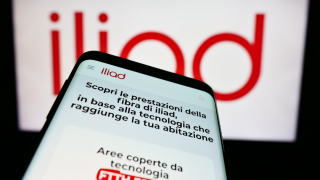The agreement will see Arqit contracted as an Intel independent software vendor (ISV), and its technology sold by Intel on a revenue-share basis.
Specifically, Arqit's symmetric key agreement platform will be integrated into Intel Xeon D based network cards and server infrastructure.
The joint products from Intel and Arqit are available immediately, with Arqit revealing that leading telecoms companies have already begun processes to activate and deploy the technology.
Spokespeople for Arqit said the company is “delighted” to progress its work with Intel, and the certification as an ISV kicks off a global commercial go-to-market strategy.
Arqit and Intel have already partnered to test quantum key technology, but the latest move evolves this from a trial to a full commercial partnership.
As quantum computing continues to develop, the existing methods to encrypt data passing between two devices become more irrelevant, as the advanced computing power of a quantum system can easily decrypt and access it.
As a result, several new methods are being trialled to secure data against quantum-powered decryption techniques, commonly known as post-quantum cryptography.
Explaining Arqit’s approach, CEO David Williams described symmetric encryption as “the gold standard for post-quantum protection,” in an interview with Capacity earlier this year.
It involves parties sharing a key created by randomness so both intended parties can access the data rather than the solving of a mathematics problem, which classical and some post-quantum cryptography methods rely on.
Symmetric key distribution is further strengthened by dynamic rotating authentication, Williams says, which means that even if the key is seen by an unintended third-party, the window for exploitation is minimised, because the key changes every second.
Intel have a large market share in the networking chip space, and as such the implementation of an out-of-the-box, quantum-secure solution is a significant development for Arqit’s key market segment of connecting point-to-point network connections.
It has acknowledged that the threat to data from quantum decryption is already present.
Despite the development of a fully operational quantum computer being some years away, bad actors are likely storing data to decrypt it later, the company says.
Intel also believes it’s important that the whole industry gets ahead of the game and begins implementing post-quantum encryption now, as development timelines for protection may outstrip decryption abilities.
“Recent executive orders and memorandums from the White House concerning the future of quantum computing and its associated cybersecurity risks underscore the urgent need to protect data now,” according to Intel's report 'Post-Quantum Cryptography: Defending Against Future Adversaries'.






